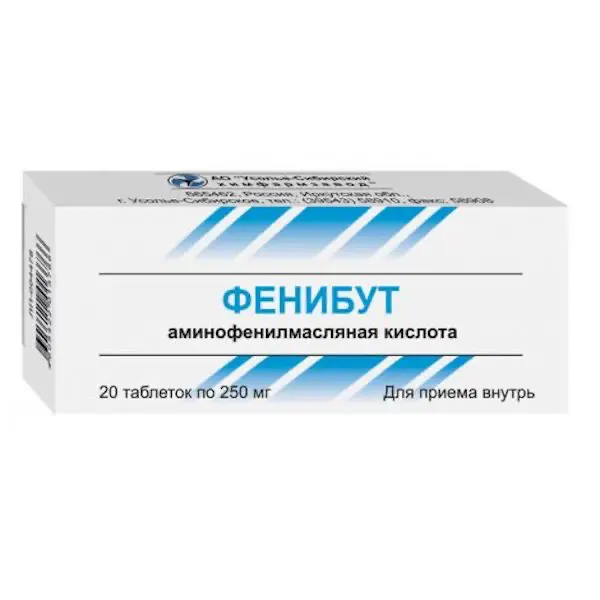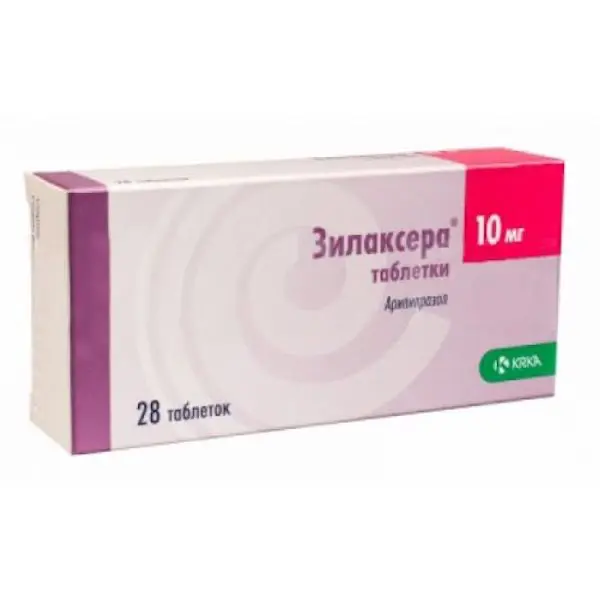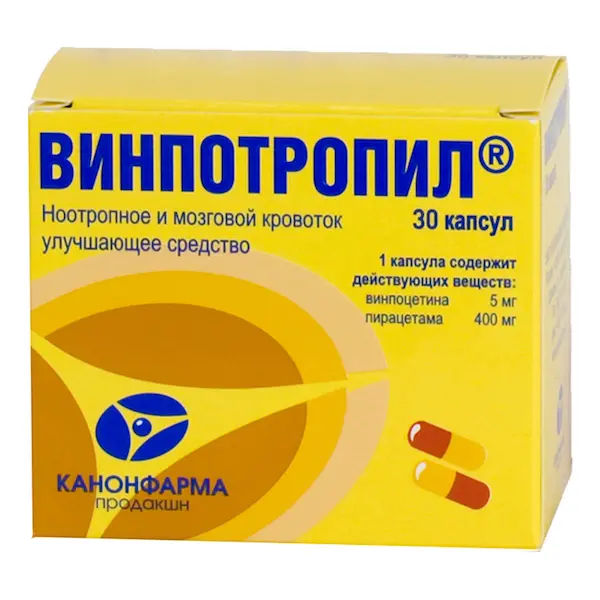Description
Phenibut Pharmacodynamics
As a derivative of gamma-aminobutyric acid and phenylethyl amine, aminophenyl butyric acid facilitates GABAergic transmission of nerve impulses in the central nervous system (direct effect on GABA-ergic receptors). It has tranquilizing effect that is combined with stimulation of central nervous system activity; it improves functional condition of the brain by normalizing its metabolism and blood flow in the brain (it increases volume and linear velocity of blood flow, reduces vascular resistance and improves microcirculation), reduces vasovagal symptoms (including headache and “heavy” feeling in the head, sleep disorders, irritability, emotional lability), eliminates psychoemotional tension, contributes to the development of the brain, and improves the blood circulation. Does not affect choline and adrenoreceptors. It prolongs the latent period and shortens the duration and severity of nystagmus. With a course of treatment increases physical and mental performance (improves attention, memory, speed and accuracy of sensory-motor reactions). It reduces manifestations of asthenia, increases interest and initiative (promotes motivation for activity) without the effects of sedation or agitation,
Does not cause central nervous system depression in the elderly, muscle relaxant aftereffects are mostly absent.
It reduces the depressing effect of ethanol on the central nervous system.
Indications
-Asthenic and anxious-neurotic conditions;
– Stuttering, tics and enuresis in children from 3 years old;
– Insomnia and night anxiety in the elderly;
– Meniere’s disease, dizziness associated with dysfunctions of the vestibular analyzer of different genes;
– Prevention of motion sickness in kinetosis;
– As part of the treatment of alcohol withdrawal syndrome, to relieve psychopathological and somatovegetativnyh disorders,
Contraindications .
Hypersensitivity to any drug component, acute renal failure, pregnancy, breast-feeding, children under 3 years of age. It is not recommended for patients with hereditary galactose and lactose intolerance, lactase and glucose-galactose mastabsorption deficiency (due to the presence of lactose in the drug),
Dosage and administration
- Orally, after a meal, without chewing, with plenty of water.
- Asthenic and trey-neurotic conditions in adults in elderly people
- Adults: 250-500 mg 3 times a day. The highest single dose: 750 mg for adults, 500 mg for elderly and senile patients (over 60 years of age). If necessary, the daily dose can be increased to 2.5 g (2500 mg). The course of treatment consists of 4 to 6 weeks. Stuttering and bedwetting in children:
- Children aged 3 to 8 years: 125 mg (1/2 tablet) 3 times a day, children aged 8 to 14 years: 250mg (1 tablet) once a day.
- Children over 14 years of age take the dose recommended for adults. The course of treatment is two to six weeks.
- Insomnia and nocturnal anxiety in elderly people (60 years and older):
- 250-500 mg 3 times a day.
- For dizziness elimination in vestibular analyzer dysfunction of infectious genesis (otogenic labyrinthitis) and Meniere’s disease:
- During exacerbation, the dose is 750 mg (3 tablets) 3 times a day for 5-7 days, when the severity of vestibular disorders decreases – 250 – 500 mg (1 – 2 tablets) 3 times a day for 5-7 days and then 250 mg once a day for another 5 days.
- In a relatively mild course of the disease – 250 mg 2 times a day for 5-7 days, then 250 mg once a day for 7-10 days.
- To eliminate dizziness in dysfunction of the vestibular analyzer of vascular and traumatic genesis:
- 250 mg 3 times daily for 12 days.
- For prevention of motion sickness in kinetosis:
- By 250 – 500 mg once 1 hour before the intended start of travel and or at the appearance of the first symptoms of motion sickness. The anti-sickness effect of phenibut increases with increasing the dose of the drug. When pronounced manifestations of seasickness (severe vomiting and others) prescription of the drug orally is ineffective,
- As part of complex therapy for alcohol withdrawal syndrome in order to relieve psychopathological and somatovegetative disorders:
- During the first days of treatment it is prescribed on 250-500 mg 3 times during a day and at night 750 mg, with gradual lowering of a daily dose to usual for adults.
- It is not allowed to take a double dose to replace a missed dose.
- Patients with renal and/or hepatic impairment should have their renal and/or hepatic function monitored during long-term use.
- In patients with impaired hepatic function, high doses of the drug may contribute to hepatotoxicity, in which case patients are prescribed lower doses.





